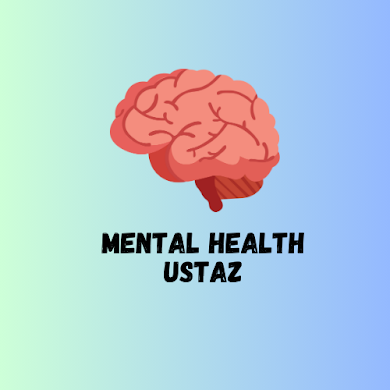Introduction: In today's fast-paced world, anxiety is a universal experience that affects millions of people worldwide. While it's a normal response to stress and danger, excessive anxiety can be debilitating. In this comprehensive guide, we'll explore the depths of anxiety, answering the question, "What is anxiety?" and examining its causes, symptoms, and effective coping strategies. To ensure you receive the most accurate and up-to-date information, we'll refer to the valuable resources provided by the American Psychological Association (APA).
What is Anxiety?
Anxiety is a natural response hardwired into the human brain. It's a part of the body's fight-or-flight mechanism, designed to protect us from danger. When faced with a perceived threat, the body releases adrenaline, causing increased heart rate, faster breathing, and heightened alertness - all in preparation for action. This reaction is perfectly normal and even beneficial in many situations. However, anxiety becomes a problem when it becomes excessive and uncontrollable, interfering with one's daily life.
Causes of Anxiety
Understanding the root causes of anxiety is vital in effectively managing it. While it's often a result of a combination of factors, here are some of the most common causes:
- **Genetics:** Your family history can play a significant role in determining your susceptibility to anxiety. If you have close relatives who have experienced anxiety disorders, you may be more prone to developing them.
- **Brain Chemistry:** Imbalances in neurotransmitters, such as serotonin and dopamine, can lead to anxiety. These chemicals play a crucial role in regulating mood and emotions.
- **Trauma:** Past traumatic experiences, such as physical or emotional abuse, natural disasters, or accidents, can increase the likelihood of developing anxiety disorders. Traumatic experiences can leave a lasting impact on the mind.
- **Stress:** Persistent stress from work, relationships, or significant life changes can exacerbate anxiety. Chronic stress can wear down the body and make it more susceptible to anxiety-related conditions.
- **Personality Traits:** Certain personality traits can predispose individuals to anxiety. Traits like perfectionism, excessive worrying, and low self-esteem can make individuals more vulnerable to anxiety disorders.
Symptoms of Anxiety
Anxiety can manifest in various ways, affecting not only your mental state but also your physical well-being and behavior. Recognizing these symptoms is crucial for seeking appropriate help and treatment:
- **Physical Symptoms:** Anxiety can result in a range of physical symptoms, including a rapid heartbeat, sweating, trembling, muscle tension, and shortness of breath. Some people may experience stomach discomfort or nausea as well.
- **Emotional Symptoms:** Anxiety often gives rise to overwhelming feelings of fear, unease, and irritability. You might constantly feel on edge or experience a sense of impending doom.
- **Cognitive Symptoms:** Anxiety can lead to racing thoughts, difficulty concentrating, and excessive worry. These cognitive symptoms can be particularly distressing and interfere with daily functioning.
- **Behavioral Symptoms:** In response to anxiety, individuals may exhibit behaviors like avoidance of triggers, restlessness, or seeking reassurance from others. These behaviors can negatively impact one's personal and professional life.
Effective Coping Strategies
Managing anxiety is a multi-faceted journey that often requires a combination of strategies. The American Psychological Association (APA) offers valuable insights into effective coping methods:
- **Cognitive Behavioral Therapy (CBT):** CBT is a highly effective therapeutic approach for managing anxiety. It helps individuals identify and change negative thought patterns that contribute to their anxiety. By altering the way they perceive and respond to stressors, individuals can reduce their anxiety symptoms.
- **Medication:** In some cases, medication prescribed by a healthcare professional can be a helpful component of anxiety treatment. Medications such as antidepressants and anti-anxiety drugs can provide relief from severe symptoms.
- **Lifestyle Changes:** Small but impactful changes in your daily routine can significantly reduce anxiety. Engaging in regular physical activity, maintaining a balanced diet, and ensuring adequate sleep are essential for managing anxiety.
- **Relaxation Techniques:** Practicing relaxation techniques like deep breathing, meditation, and progressive muscle relaxation can help reduce anxiety and promote a sense of calm. These techniques are particularly effective in reducing the physical symptoms of anxiety.
- **Seeking Support:** Sometimes, coping with anxiety is more manageable when you have support. Speaking to a therapist or counselor can provide you with strategies and emotional support. Joining a support group can also connect you with others who are experiencing similar challenges.
In Conclusion
Anxiety is a common human experience that can become problematic when it becomes excessive and unmanageable. Understanding the causes and symptoms of anxiety is the first step towards effectively managing it. By incorporating coping strategies like CBT, medication, and lifestyle changes, individuals can regain control over their lives and reduce the impact of anxiety. For more information and resources on anxiety, visit the [American Psychological Association (APA)](https://www.apa.org/topics/anxiety). Remember that you don't have to face anxiety alone; support is available, and there are proven methods to help you regain a sense of peace and control in your life.
Certainly! Here are five frequently asked questions (FAQs) about anxiety:
1. **What is the difference between everyday anxiety and an anxiety disorder?**
- Everyday anxiety is a normal response to stress, while an anxiety disorder is characterized by excessive, persistent anxiety that interferes with daily life. Anxiety disorders often require professional treatment, while everyday anxiety can be managed through stress-reduction techniques.
2. **Can anxiety be cured, or is it a lifelong condition?**
- Anxiety disorders are typically treatable, and many people experience significant relief from their symptoms with the right treatment approach. However, some individuals may continue to experience occasional anxiety even after treatment. It's important to manage anxiety effectively rather than aiming for a complete cure.
3. **What are the most common types of anxiety disorders?**
- Some of the most common anxiety disorders include generalized anxiety disorder (GAD), social anxiety disorder, panic disorder, and specific phobias. Each type of anxiety disorder has its unique set of symptoms and triggers.
4. **Is medication the only effective treatment for anxiety?**
- Medication can be effective in managing anxiety, but it's not the only treatment option. Cognitive Behavioral Therapy (CBT), relaxation techniques, and lifestyle changes are also proven methods for anxiety management. The most appropriate treatment varies from person to person.
5. **Can anxiety be prevented, or is it solely a result of genetics and life experiences?**
- While genetics and life experiences play a significant role in anxiety, preventive measures can help reduce its impact. Strategies like stress management, maintaining a healthy lifestyle, and seeking early treatment for anxiety symptoms can be effective in preventing anxiety disorders or reducing their severity.





0 Comments